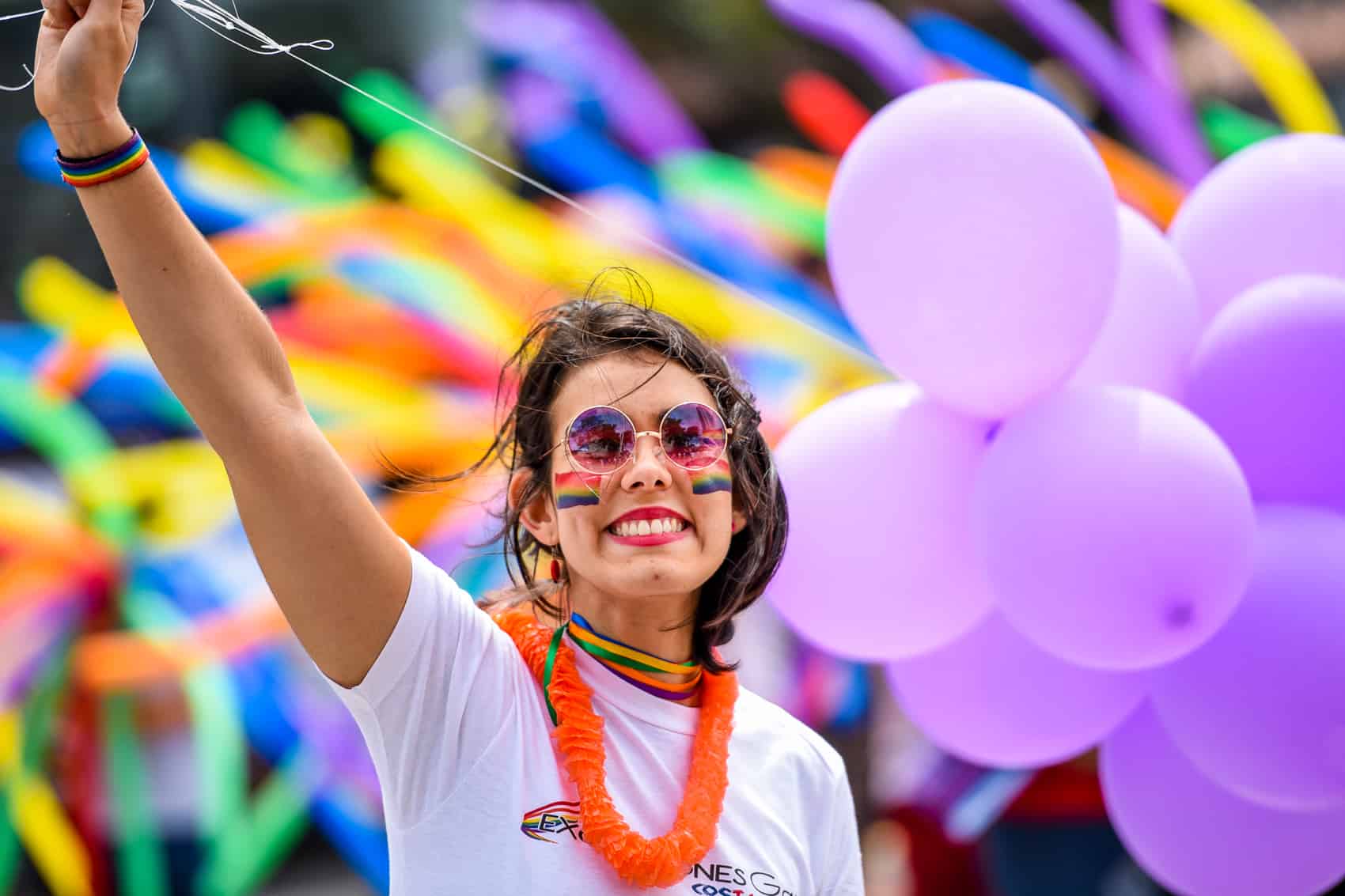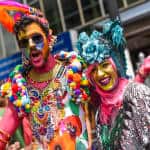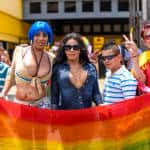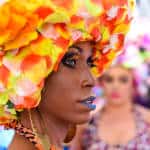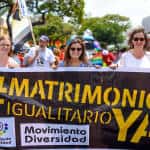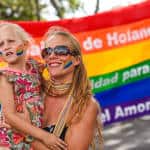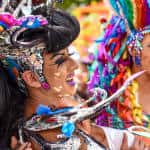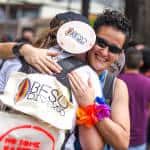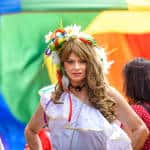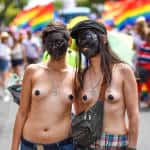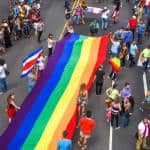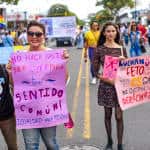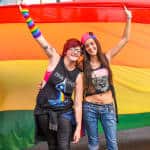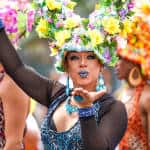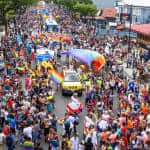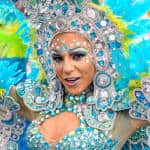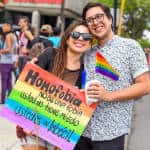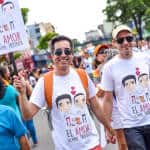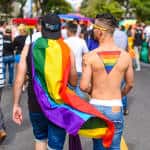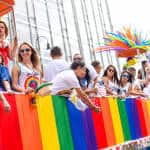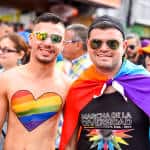The Supreme Court’s decision that same-sex marriage is a constitutional right in the United States was on the minds of marchers at San José’s sixth annual lesbian, gay, bisexual and transgender pride parade Sunday.
Floats festooned with rainbow flags and balloons inched their way down San José’s main thoroughfare, Paseo Colón and Avenida 2, between marchers carrying flags and signs in support of equal rights for Costa Rica’s LGBT community. Thousands participated including Vice President Ana Helena Chacón and several large corporations like Intel, Hewlett-Packard, IBM, and Thompson Reuters, among others.
The celebrations started Sunday morning with a 5 km “pride run” that organizers claimed was the first of its kind in Costa Rica and Central America. After the run, marchers gathered near La Sabana Park to start the parade.
News of the Supreme Court decision Friday had many marchers thinking about what it might mean for the debate over same-sex civil unions in Costa Rica.
See also: US Supreme Court makes gay marriage legal in all 50 states
“I think it could have a lot of impact here,” said Marco Castillo, president of the LGBT advocacy group Diversity Movement.
“We have five countries in the Americas with marriage equality: Canada, United States, Mexico, Uruguay and Argentina. And there are others that have recognized [same-sex] partnerships but not marriage. This gives us a lot of hope. Costa Rica can’t be left behind,” he said.
Gustavo Hernández, who walked down Paseo Colón with a rainbow flag over his shoulder, said he was hopeful too: “In Costa Rica we are influenced by what happens in the United States and other big countries. Sooner or later those decisions start to arrive here.”
Costa Rica’s Supreme Court is reviewing its own marriage equality case. A Costa Rican judge issued the first same-sex common-law marriage in Central America on June 2. On June 9, the Constitutional Chamber of the Supreme Court announced that it would study the judge’s interpretation of an amendment to the Youth Code in July 2013 that advocates claimed opened the door to legally recognized same-sex partnerships.
Others at the pride parade said that they were pleased with the decision but noted that they did not think that marriage should be the only avenue for LGBT people to gain equal rights.
Castillo said that besides civil unions, the Diversity Movement was supporting anti-discrimination legislation, a bill that would support transgender people’s decision to choose their gender on state-issued identification, and LGBT-specific health policy that includes HIV-AIDS prevention.
Recommended: Costa Rica to punish public workers for LGBT discrimination
Big issues like gay marriage might have been on the minds of many but walking in the pride parade was a more personal event for others.
“It’s an activity for all of us to celebrate what’s been achieved. It’s to empower us, to get out in the streets and show that we’re all the same and there’s no reason to discriminate against anyone,” said Ivan Ceballos, who carried a large rainbow flag.
“I’ve been coming for three years now to the march to make up for the time I didn’t, when no one knew [that I was gay],” said Antonio Mairena, “It’s a way to show my family that I’ll always march for what I believe in.”

